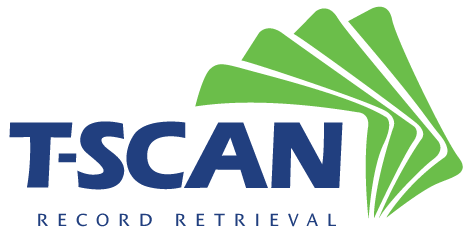Medical record retrieval is an important, time-consuming task fraught with potential pitfalls, delays, and errors. Entrusting a record retrieval service to gather mission-critical documents during claims or litigation adjudication can be a challenging task. Choosing the wrong service may result in overspending, lost time, and claims resolution delays – delays that negatively impacts your relationship with your client.
Without a retrieval company, time spent by stakeholders in retrieving and organizing documents is time better spent on case evaluation and strategy. Making the choice to outsource retrieval is not a difficult one, but choosing the right retrieval service is critical.
How does a professional law firm or claims organization choose a reliable record retrieval partner?

Choosing the Right Record Retrieval Service
HIPAA requiresmedical records custodians to be vigilant in protecting patient information. By design, access to protected medical records or other sensitive records by a party other than the patient is a difficult task. Navigating federal and state rules governing access, while also working with the healthcare provider’s workflow requirements, requires time and expert knowledge.
During the claims or litigation process, when accessing pertinent records is mission critical, record retrieval needs to be done correctly and efficiently. The outcome of the case hinges on available information. A successful record retrieval experience is a mandatory.
What factors determine a good record retrieval partner?
An informed decision is a better decision. Consider these five key questions when choosing a retrieval company.
1. Is Record Retrieval the Company’s Core Competency?
When choosing a retrieval service, the first question you should ask is if retrieval is their core competency or a side offering.
Many vendors within the legal industry will add on record retrieval. We have seen court reports, legal nurses, IME companies, investigators and others market retrieval services as an add-on service..
However, record retrieval is a detailed-oriented task requiring full time attention. A firm outsources record retrieval to save cost and time.
Hiring a vendor who purports to provide retrieval services on a part-time or add-on service is no different that having your own office staff perform the duty when time allows and saves little cost or little time. Medical record retrieval takes expertise and requires dedicated resources to accomplish efficiently.
Hire a record retrieval company dedicated to the task, not a vendor who happens to do record retrieval as time permits. If it were that easy, we could all hire our retired Aunt Marge to gather records.
2. Is Staff Knowledgeable?
When choosing a service, ask what the record retrieval vendor’s training program is and what the general experience level is of their specialists who will be handling requests.
Does the retrieval staff have a true understanding of the federal, state, and corporate rules governing release of information throughout various jurisdictions?
Your retrieval service should do more than just send in a request and hope for the best. A true record retrieval partner helps research the record custodian’s correct contact information and understands provider requirements as well as the various regulations. The service should help the the firm avoid or solve issues that may delay any request – not add delays due to lack of knowledge or experienced employees.
In order to help you avoid problems, the staff servicing your account needs to have a thorough understanding of regulations and how regulations may work together or against one another.
Your retrieval service should offer you solutions, not depend on your staff to offer solutions. Why hire a service to retrieve records if anytime a problem comes up that service looks to your office for advice? If your retrieval service does not help solve issues that may come up, then Aunt Marge could do just as well.
A reliable retrieval service offers record retrieval solutions, not record retrieval problems.
3. What is their Capacity for Retrieval?
Bigger is not always better.
A firm needs to know that their retrieval vendor can handle volume of requests, but it is a mistake to look at the size of the retrieval firm to determine whether or not a record retrieval service is right for your needs. Efficiency of workflow should inform capacity more than size of a firm.
Beware of retrieval companies offering national retrieval who are woefully understaffed, or are overstaffed with employees not trained in best practices in gathering records from various jurisdictions. Size does not determine capacity – expertise and efficiency determines capacity.
One expertly trained retrieval specialist can successfully handle exponentially more requests with superior results than an entire office of untrained staff.
Before choosing a vendor, ask them to explain in detail how they handle volume. Ask them who is working on their requests, and what training is conducted to ensure success. Ask them how they handle various training for various jurisdictions.
Any retrieval company, large or small, can send in requests to providers all over the country. The key to successful record retrieval is actually getting the records released. The largest of the retrieval firms often use size to cover for poor success rates.
Rather than look at the size of a company, a potential client should look at the retrieval success rate of company and the metrics used to measure that success. Record retrieval results are the true measure of capacity, not number of offices, employees or requests sent out.
4. What is the Cost of Record Retrieval?
While costs may vary across the country, in general, most retrieval services charge similar rates.
Most retrieval services have some sort of volume or exclusivity discount available to clients. These agreements can have a positive or an unintended negative effect.
If your firm has reached out to a retrieval service and successfully demanded a large percentage off of standard rates, be wary of the retrieval company that readily agrees to a drastic cut in rates.
Why?
If a company has no issues in significantly cutting standard rates by a large margin, one should consider that unless the retrieval company has overtly overpriced standard service rates, which would be a separate issue that should cause concern, then the only way to absorb a drastic cut is by cutting quality of service.
A drastic cut in fees may cost the client more in poor service than any intended savings. Finding a competitive and appropriate cost that maintains service is key.
Fees can and should be negotiated where appropriate. But, as a wise man once said, sales involves a lot more than just saying “Yes.” Be wary of the retrieval firm that jumps at the chance to get your work by offering a too-good-to-be-true discount.
There will be a price to pay.
Potential clients and the medical record retrieval partner should have an appropriate, and transparent discussion regarding rates, service expectations, and ability.
In addition to cost reports, your retrieval service partner should have the ability to detail requests by region, office, and user on-demand. These reports should include success metrics such as turn-around time, page (image) counts, and cost per invoice among other details.
A retrieval partner should ask pricing and service expectations up front. A partnership requires both sides to be equally transparent in identifying pricing concerns. If a retrieval service avoids, or fails to address pricing concerns, it should be a red flag.
5. Are Portions of their Operation Offshore?
Beyond, privacy and security concerns, there are many components of a successful medical records retrieval operation that are difficult or nearly impossible to perform with the issues classically inherent in all but the best of best offshore operations.
If they do have offshore operations, make sure they produce adequate documentations of their privacy and security protocols. Ask them if the operation is dedicated or shared.
Many offshore outsourcing companies support multiple companies simultaneously. This can create confusion operationally as well as cause a number of headaches in a breach scenario.
Offshore operations also can be a sign of a reactive customer service model. Make sure you understand who your end users will be interacting with and how. If the issue needs to be escalated, what is the process and what type of background will that person have?
A Partner, Not A Problem
In the end, the relationship between the user and the medical record retrieval company is a partnership. Successful partnerships deliver results for the customer which often requires open, transparent dialogue.
The task of record retrieval is a detailed task requiring precision and expertise. Hiring a service where you just submit a request and hope for the best, without the ability to utilize experts in the field, is detrimental to the case and purpose of using an outside retrieval service.
You want a professional, experienced medical record retrieval firm with expertise and resources to gather the record as quickly and efficiently as possible.
You want a firm that understands that without delivering the record, you cannot satisfy your clients.
You want a record retrieval partner.










 1-800-285-1507
1-800-285-1507 info@tscan.biz
info@tscan.biz.png)